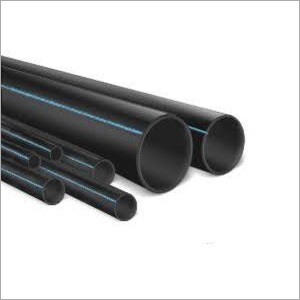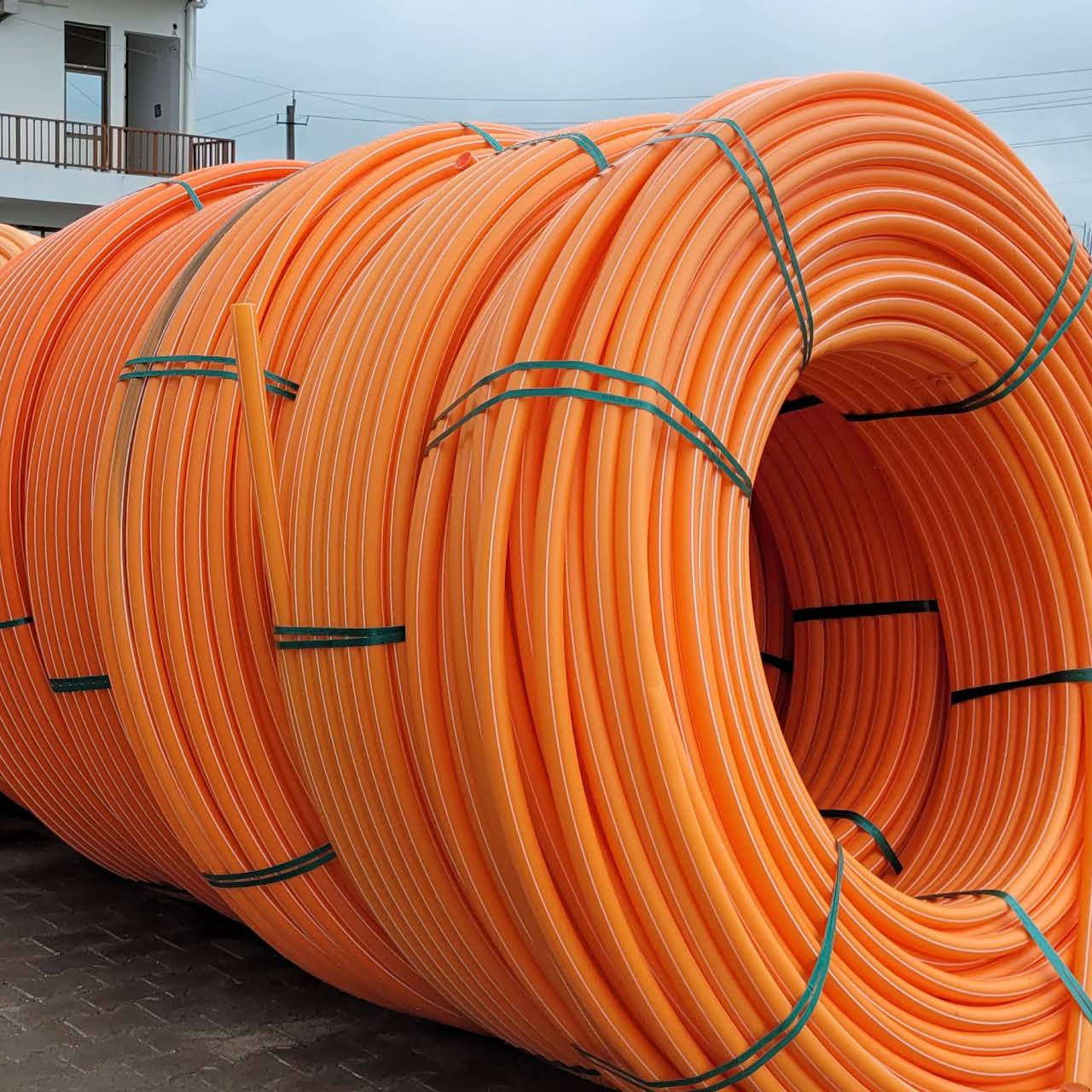The Role of Pipe Manufacturing Midland TX in Driving Local Projects
Wiki Article
A Comprehensive Guide to the Numerous Uses HDPE Pipeline in Building and Market
HDPE pipes have actually become a crucial component in modern building and industrial applications. Their unique homes, such as resistance to corrosion and lightweight design, make them ideal for a wide variety of usages. From water supply systems to agricultural irrigation, HDPE pipelines offer solutions that enhance performance and sustainability. Comprehending their varied applications is important for experts aiming to optimize framework. What certain advantages do these pipes give each field?Water System and Distribution Systems
Water system and distribution systems are crucial parts of urban facilities, usually depending on high-density polyethylene (HDPE) pipelines for their resilience and effectiveness. These systems transportation potable water from treatment centers to customers, ensuring availability and safety and security. HDPE pipes are preferred for their resistance to corrosion, chemicals, and severe temperature levels, which enhances their longevity and decreases maintenance prices. In addition, their lightweight nature enables simpler installment and transport, making them suitable for different urban and country applications.The versatility of HDPE pipes enables them to be mounted in tight rooms and around obstacles, reducing the requirement for extensive excavation (Pipe Manufacturing Midland TX). Furthermore, their smooth indoor surface lowers friction losses, enhancing water flow rates. As cities remain to grow, the demand for reputable supply of water systems boosts, placing HDPE pipes as a lasting remedy for modern infrastructure jobs. Their proven track record makes them a favored option amongst designers and city coordinators alike
Wastewater Monitoring and Treatment
Effective wastewater monitoring and therapy are necessary for preserving public health and wellness and environmental high quality. HDPE pipelines play an essential function in this process as a result of their toughness, resistance to rust, and capability to stand up to rough chemicals. These pipelines are typically utilized in numerous applications, including sewage systems, stormwater water drainage, and wastewater treatment facilities. Their lightweight nature facilitates less complicated setup and transport, lowering labor costs and time.In addition, HDPE pipelines have a smooth indoor surface area that reduces friction loss, advertising effective flow prices. They are additionally less prone to leakages and failures contrasted to typical materials, making certain that pollutants are included successfully. Their versatility allows for flexibility in numerous dirt problems, making them appropriate for diverse ecological settings. As sectors progressively focus on sustainable practices, using HDPE pipes in wastewater monitoring systems lines up with goals for lowering ecological impact and boosting source healing.
Agricultural Irrigation Solutions
In farming settings, efficient irrigation options are vital for optimizing crop returns and managing water sources. HDPE (High-Density Polyethylene) pipes play a vital role in contemporary watering systems because of their toughness, adaptability, and resistance to deterioration. Their ability to hold up against high stress makes them suitable for both surface area and subsurface watering applications, guaranteeing uniform water circulation throughout fields.Farmers can utilize HDPE pipes in drip watering systems, which supply water directly to plant roots, reducing waste and advertising healthy and balanced development. Additionally, these pipelines are light-weight and simple to set up, lowering labor prices and installment time. Their lengthy life-span and low upkeep requirements additionally improve their charm in farming methods.
HDPE pipes are ecologically friendly, as they can be reused and do not leach damaging chemicals into the soil. This makes them a sustainable option for farmers aiming to adopt environmentally friendly farming methods while making the most of productivity.
Industrial Applications and Procedures
Flexibility is a trademark of HDPE pipes, making them essential in numerous industrial applications and processes. These pipes are widely used in chemical handling markets as a result of their outstanding resistance to a variety of destructive materials. HDPE's lightweight nature, combined with high tensile strength, enables simple setup and long-term performance sought after environments.In the oil and gas field, HDPE pipes play a necessary role in carrying hydrocarbons and gases, many thanks to their sturdiness and adaptability - American Plastics HDPE Pipe for Oilfield. Additionally, they are employed in mining procedures for the transportation of slurry and other products, where traditional piping systems might fall short
HDPE pipelines are increasingly made use of in producing centers for water supply lines and wastewater monitoring. Their capability to hold up against extreme temperature levels and stress makes them suitable for a range of industrial processes. Generally, HDPE pipes contribute substantially to effectiveness and security throughout varied industrial applications.
Stormwater Management and Drainage Equipments
Stormwater management and drainage systems are vital parts in city infrastructure, developed to handle excess rains and lower flooding risks. High-density polyethylene (HDPE) pipes are progressively utilized in these systems because of their sturdiness, flexibility, and resistance to corrosion. These pipelines successfully carry stormwater away from inhabited locations, decreasing surface overflow and stopping waterlogging.HDPE's light-weight nature facilitates less complicated installment, minimizing labor prices and building time. In addition, its resistance to chemicals and ecological stressors guarantees durability and reliability in numerous climates. Along with conventional water drainage applications, HDPE pipelines are also used in cutting-edge solutions such as green infrastructure, which includes rain yards and absorptive sidewalks.

Pipe Supplier American Plastics Midland
Often Asked Inquiries
How Does HDPE Pipe Contrast to PVC Pipeline in Cost?
As a whole, HDPE pipe often tends to be extra costly than PVC pipe due to its improved toughness and versatility. However, long-lasting cost considerations, such as maintenance and life expectancy, may prefer HDPE in certain applications.
What Is the Life-span of HDPE Pipes Under Numerous Problems?
HDPE pipelines commonly have a life-span of 50 to 100 years, depending upon ecological problems, setup practices, and use. Elements such as temperature, dirt kind, and exposure to chemicals can significantly affect their sturdiness.Can HDPE Pipeline Be Recycled After Use?
Yes, HDPE pipes can be reused after usage. The recycling procedure entails thawing down the material, permitting it to be repurposed into brand-new items, thus advertising sustainability and lowering environmental influence associated with plastic waste.Are There Any Type Of Particular Setup Obstacles With HDPE Pipelines?
Installation difficulties with HDPE pipes consist of appropriate jointing techniques, guaranteeing adequate trench conditions, and handling thermal growth. Additionally, experienced labor is required to deal with customized equipment, which can complicate the installation procedure in various settings.
What Certifications Should I Search For When Acquiring HDPE Water Lines?
When acquiring HDPE pipes, one must try to find certifications such as ASTM, AASHTO, and ISO, which confirm quality and compliance with industry criteria, guaranteeing sturdiness and performance in different applications. - American Plastics HDPE Pipe ManufacturingReport this wiki page